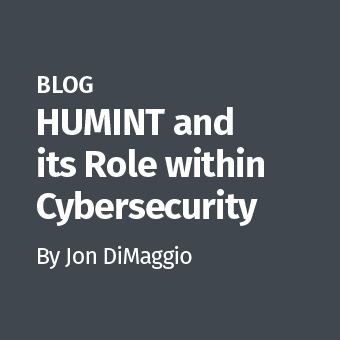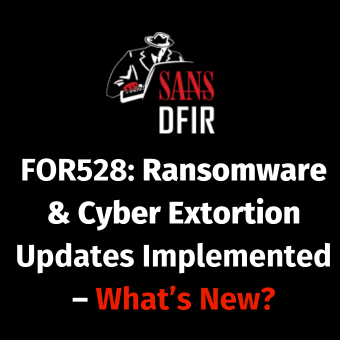"Gentlemen, you are about to enter the most fascinating sphere of police work: the world of forensic medicine."
I am just old enough to remember that long before shows like CSI became pop culture, there was the great Quincy, M.E. Those dramatic words (and who can forget the sudden retching of one poor novice officer during an autopsy in the opening credits) may have started many of us on the path to a forensics career. The grandfather of all television dramas about real forensic work (in Quincy's case, forensic coroner) is a classic and inspired most of what we see today in one form or another, in particular the fascination with medical forensics and pathology. The essential difference, though, is that in today's dramas forensics is viewed as exciting and fast-paced, with solid support and lightning-fast conclusions at every turn; a case solved every episode because everything in the forensics process moves that quickly. Quincy, M.E. worked in times when applications of forensic science was (by the standards of most outside the field, particularly police detectives and administrators!) boring work, a way to file documentation about the deceased in Quincy's particular situation. Quincy, though, was never content with sitting in the lab. He was compelled to go outside the lab to get the whole story, and in that respect he became one of pop culture's first forensics icons, imitated again and again in today's programming.
How achingly familiar does Quincy's modus operandi seem to the rest of us?
(From http://en.wikipedia.org/wiki/Quincy,_M.E.) :
"Many of the episodes follow this formula:
- Somebody dies, seemingly by natural causes.
- Quincy notices something that causes him to suspect foul play.
- He then changes roles from medical examiner to detective.
- Quincy's boss gets upset, believing that Quincy is seeing evidence that doesn't exist and that Quincy should work on routine cases. The police get their feathers ruffled as he "shoulders-in" on their territory as well.
- He argues quite loudly with some bureaucratic individual impeding the case.
- Quincy solves the murder. "
Quite simply, if only forensics were as smooth sailing as CSI would have us believe, when it comes to truly being able to navigate the murky waters of any large organization in an effort to establish and document facts. Those with shiny badges might have more success...but even they will tell you that the truth is stranger than fiction. Bureaucracy is a fact of life in business or government, so creating tools for navigating it effectively can be a very valuable forensic resource.
So what tools are available? Quincy helped teach me that thinking outside of the box (or in our case, the lab) is sometimes the only way to truly assess the facts of a situation. Patience, tenacity, hard work, and even the strongest analytical skills can take you so far before you get into the almost certain "Loud Argument" phase when the real world of organizational dynamics is factored in. The solution for Quincy, sometimes missed by newcomers to the field, is good old intelligence gathered when he put his other "hat" on (that of gumshoe detective). Had he not done this, every episode would have begun and ended with him filing paperwork, leaving a killer at-large.
Organizational intelligence (a component of business intelligence) can be a critical factor in enterprise forensics, because nothing is more important in applications of forensic science than being current, being aware, and staying within the confines of forensic validity relevant to your specific environment. In a large environment this task is particularly daunting, and combined with a digital workplace these elements are at risk of changing every day. Being able to acquire, analyze, and categorize information about your organization and its various elements is crucial to navigating it in a forensic manner. Even the best forensic analysts would be remiss to think that their role in an organization is solely in the lab. Knowing your organization outside the lab, including the nuances of its business model, political structure, and "flow", is as critical to enterprise forensics as mastering the internals of any operating system or hardware platform. Even more important is knowing where particular talent, subject matter expertise, and strong leadership can be found within the organization. Without such an approach, even the most skilled forensic analysts may never get a chance to review the data they seek. It is far, far more efficient and cost effective to do this in a proactive manner, but there will always be times when reactive intelligence gathering is your only option. Either way, failure to collect at least some intelligence as it pertains to the organizational, structural, or political environment surrounding data can seriously hamstring any investigation.
- Spend significant time on the continual process of mapping out your organization from top to bottom, in useful terms correlating to solutions for specific issues/challenges that you're likely to encounter. Focus on functional responsibilities and roles, and less on the "organizational chart" view. Map out true responsibility for applications, infrastructure, processes, and so forth.
- Don't just create a Point of Contact list?check it often and update it regularly. Organizations change over time, staff changes shift responsibilities, and in any incident response or forensics situation, time is limited.
- When not working a case, invest your cycles in networking, getting to know the work and routines of other departments, business units, locations, etc. Almost every organization has an internal "Intranet" site, but how many of us really take the time to dig into it and learn about what everyone else does with their day? Even for a massive organization with hundreds of thousands of people, you can learn a lot in a short time by setting aside some time for internal research or better, by introducing yourself ahead of time to people and stakeholders who you may have to call on for help when a case warrants it.
- Frankly, unless required by policy or job, no one deserves to be included, copied on, or involved in a forensic investigation by default. There are, however, plenty of people who want to watch your investigation as if it were indeed a CSI episode. Avoid sending information to people that are not directly involved in the legal, security, or other relevant processes in your organization (or other organizations that you might be less than familiar with). This will help to minimize the amount of friction that can sometimes occur in an investigation. You can do this by proactively mapping out which contacts to call, for what, and how. The alternative of "casting a net" for information or response during an active investigation or incident can sometimes cause interruptions that can be avoided by a bit of proactive elbow rubbing.
By performing this (yes, sometimes daily and to a few people, boring) collection of organizational intelligence in addition to focusing on our technical skills, and by getting out of the lab to get our hands dirty in the "real world" of people, processes, policy, and politics, you can strengthen your investigations in ways that software tools and SANS training can't. You may still run into the "Loud Argument" phase with certain people, but hopefully you can have that before the incident and not during it. Knowing the layers of your organization, its key players and decision makers (not just those within Security or Legal) and especially knowing the location of potential barriers and pitfalls will help you route around them, especially when handling time-sensitive investigative matters.
Mike Worman, GCFA Gold #124, also holds GCIA and CISSP certifications and an MsIA degree.





